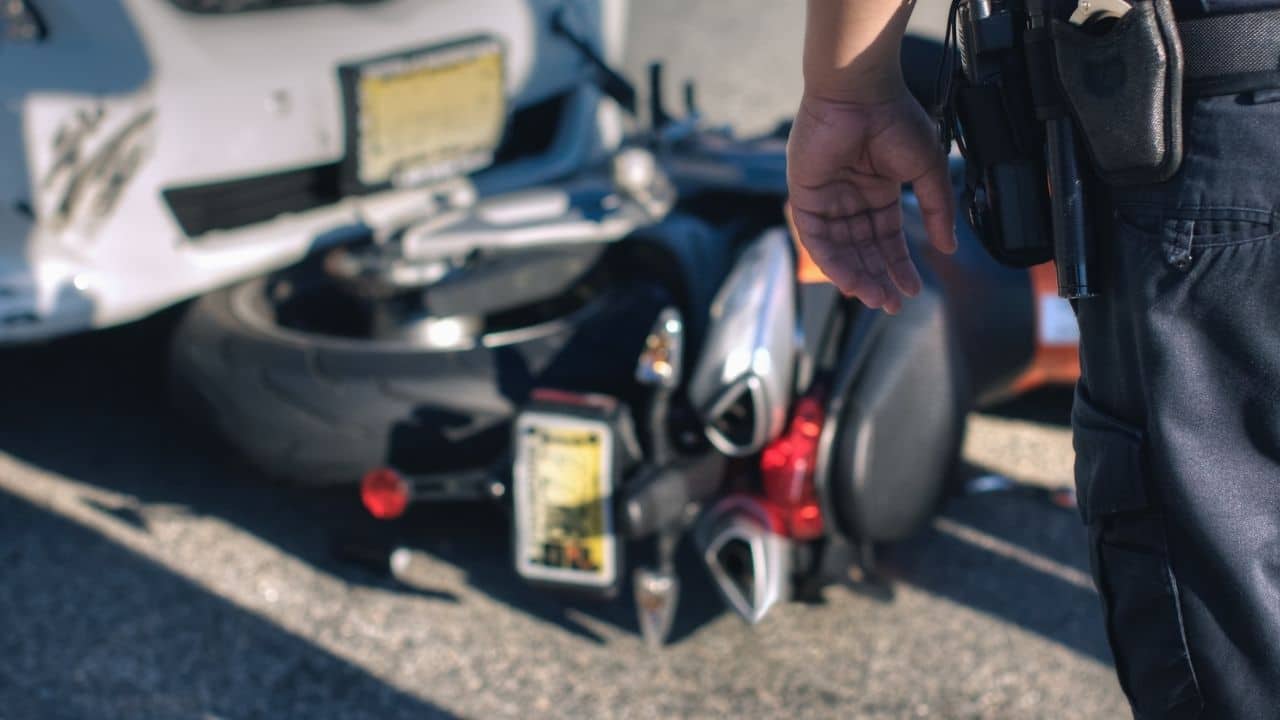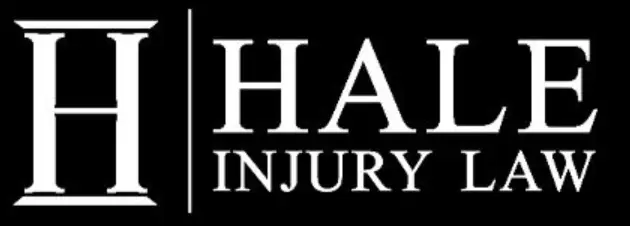
Nevada’s long desert highways make it an ideal landscape for motorcycle enthusiasts. Unfortunately, this hobby can pose many unique dangers. In 2018—the most recent year for which data is available—nearly 5,000 motorcyclists were killed while riding.
These fatal motorcycle accidents consistently occur 27 times more frequently (per mile driven) than other types of motor vehicle crashes, even though around 95 percent of vehicles on the road aren’t motorcycles.
Whether you’re a motorcyclist yourself or encounter bikers frequently, it’s crucial to know what to do if you witness or are involved in a motorcycle accident.
The shock and adrenaline that comes from encountering a sudden emergency can make it tough to make decisions on the fly, so it’s important to be prepared. Below, we’ll discuss the three most important things to do after a motorcycle accident.
Step One After a Motorcycle Accident: Assess Injuries, Call for Help, and Gather Evidence
The most crucial first step after a motorcycle accident—especially for those involved in an accident—is to get to safety as quickly as possible.
The closer you are to the roadway, the greater your risk of being struck by another vehicle, so moving yourself and any other injured persons to somewhere safe is vital.
Although it can be tempting to remove your helmet or other protective gear if you’ve been involved in an accident, resist this urge until paramedics arrive. Depending on your injuries, removing your gear without medical personnel present can be risky.
Next, call 911 to report the accident. Even if you don’t think anyone has been injured in the crash, it’s a good idea for all involved to be examined by a paramedic or other medical professional as quickly as possible.
Some injuries, particularly brain injuries or internal bleeding, may take a while to cause any complications—and the sooner you seek medical treatment, the greater the chances for a full recovery. In some cases, being evaluated by a doctor right after a motorcycle accident can save your life.
It’s also a good idea to gather as much evidence as you can—particularly photos of the scene and contact information (including names, addresses, and phone numbers) for any other drivers or witnesses to the accident.
If you’re injured, it may not be possible to do much immediately after the accident, especially if you’re being transported to the hospital. However, friends or family members who are at the scene may be able to take pictures or talk to witnesses; having this information on hand can make any future insurance claim or lawsuit far easier.
But not all evidence needs to be gathered just after the accident. Police reports and medical records can be valuable when it comes to seeking compensation for any injuries, and it may take some time for these records to be produced.
Ideally, you’ll be able to gather both contemporaneous evidence (created at the time of the accident) and diachronic or historical evidence (created after the accident) to create a full picture of the accident and any aftermath.
Step Two After a Motorcycle Accident: Contact Your Insurance Company and Speak With An Attorney
Once you’ve sought medical treatment after a motorcycle accident, it’s time to contact your insurance company—and, often, a personal injury attorney.
Your insurance company can get an insurance claim started on your behalf; and, what’s more, failing to report an accident to your insurance company (even if you’re not at fault) could put your policy at risk.
But while it’s important to contact your insurance company and be honest in your dealings with them, you don’t want to talk too much. Something as simple as acknowledging that you could have been more careful before the crash can be considered an admission of fault, and this can impact the amount of your settlement—or even whether you’re offered a settlement at all.
Although your insurance company will either pay out damages to you (if the accident was your fault) or go after the other driver’s insurance company (if the accident was someone else’s fault), all insurance companies have a vested interest in settling claims for as little as possible.
An attorney, on the other hand, has one goal—to maximize any settlement or judgment you receive.
Insurance companies often speak their own language, and when you’re facing financial pressure, there can be a lot of urgency to sign a settlement document.
Hiring a qualified motorcycle accident attorney can ensure that your rights are protected when it comes to negotiating the settlement you deserve.
Your attorney can speak with your insurance company, and the other driver’s insurance company, taking this stressful task off your plate.
Step Three After a Motorcycle Accident: Document, Document, Document
Even after you’ve contacted a motorcycle accident attorney, you’ll want to continue documenting your claim. This means keeping bills, receipts, and pay stubs, as well as maintaining a journal of your symptoms and limitations (if you’re still dealing with injuries from the accident).
The more information you have about the damages you’ve suffered as a result of the accident, the stronger your claim will be and the greater your likelihood of financial recovery.
Keeping Records of Costs
Because motorcyclists don’t have the benefit of a vehicle’s protective frame and safety glass, their injuries tend to be the most serious—and expensive.
It’s important to maintain records of all your medical costs, including those that your health insurance already paid, so that you have a full accounting of how much the accident cost you. At a minimum, you should be entitled to reimbursement of the medical costs you’ve sustained as a result of your injury.
Other accident-associated costs can include economic losses—lost wages, property damage to your motorcycle, travel to medical appointments, and any modifications you may need to make to your home or lifestyle.
For example, if you can no longer navigate stairs after an accident and live in a multilevel home, you may need to build a main-floor addition to your house, install a stairlift, or even move, all as a result of your accident.
In other cases, you might have to hire a lawn service or enlist extra childcare just to handle the same responsibilities you had before your accident. These types of indirect costs can often be recovered from the at-fault party after a motorcycle accident.
Keeping a Daily Journal
If you ultimately decide to sue the at-fault driver, your “non-economic losses”—often known as “pain and suffering”—can make up a big proportion of your total recovery. And as with all other aspects of your injuries, the more thoroughly you can document these non-economic losses, the stronger your claim will be.
As soon as you can after your accident, you should start a journal that describes your physical, mental, and emotional condition each day. For those with a more visible injury, daily photos of the recovery process can also be useful.
Maintaining Privacy on Social Media
Because the at-fault driver’s insurance company has a vested interest in settling your claim for as little as possible, they’ll be searching for anything they can use against you. And in today’s era of heavy social media usage—invigorated by the COVID-19 pandemic—it can be easier than ever for them to find an incriminating post, photo tag, or GPS locator that can later be used to argue that your injuries aren’t as serious as your claim suggests.
The insurance company may also contact your friends or family members with questions about the accident and your recovery; a slip or misstatement can be all that’s needed to send your claim down the wrong path.
Also, be wary of accepting new friend requests during this time. In Nevada and elsewhere, there aren’t any laws specifically prohibiting insurance company representatives from posing as someone else to gather information—so pairing a common name with a generically familiar-looking face and sending you a friend request can be all the insurance company needs in order to gain access to your social media history.
In this situation, even restricting certain posts to friends only won’t do anything to prevent them from being used against you in a motorcycle accident claim.
While your claim is pending, it’s best to treat all your social media accounts as though they can be read by the insurance company or the defendant, even if you’re confident you have your pages locked down to friends-only.
A Motorcycle Accident Attorney Can Fight for the Compensation You Deserve
It’s rare for the insurance company to proceed through motorcycle accident litigation without offering the claimant a settlement at some point.
But this settlement offer is often a lowball, and accepting an early settlement offer could mean leaving money on the table. After all, in most situations, it’s much cheaper for an insurance company to settle a claim than to litigate it to the bitter end (and risk having to incur the costs of appeal if the insurer loses).
Don’t ever accept an insurance company’s settlement offer without consulting with your attorney. An experienced motorcycle accident attorney can evaluate a settlement offer, let you know if it’s in line with settlements in similar cases, and work with you to negotiate a higher amount based on the available evidence.
